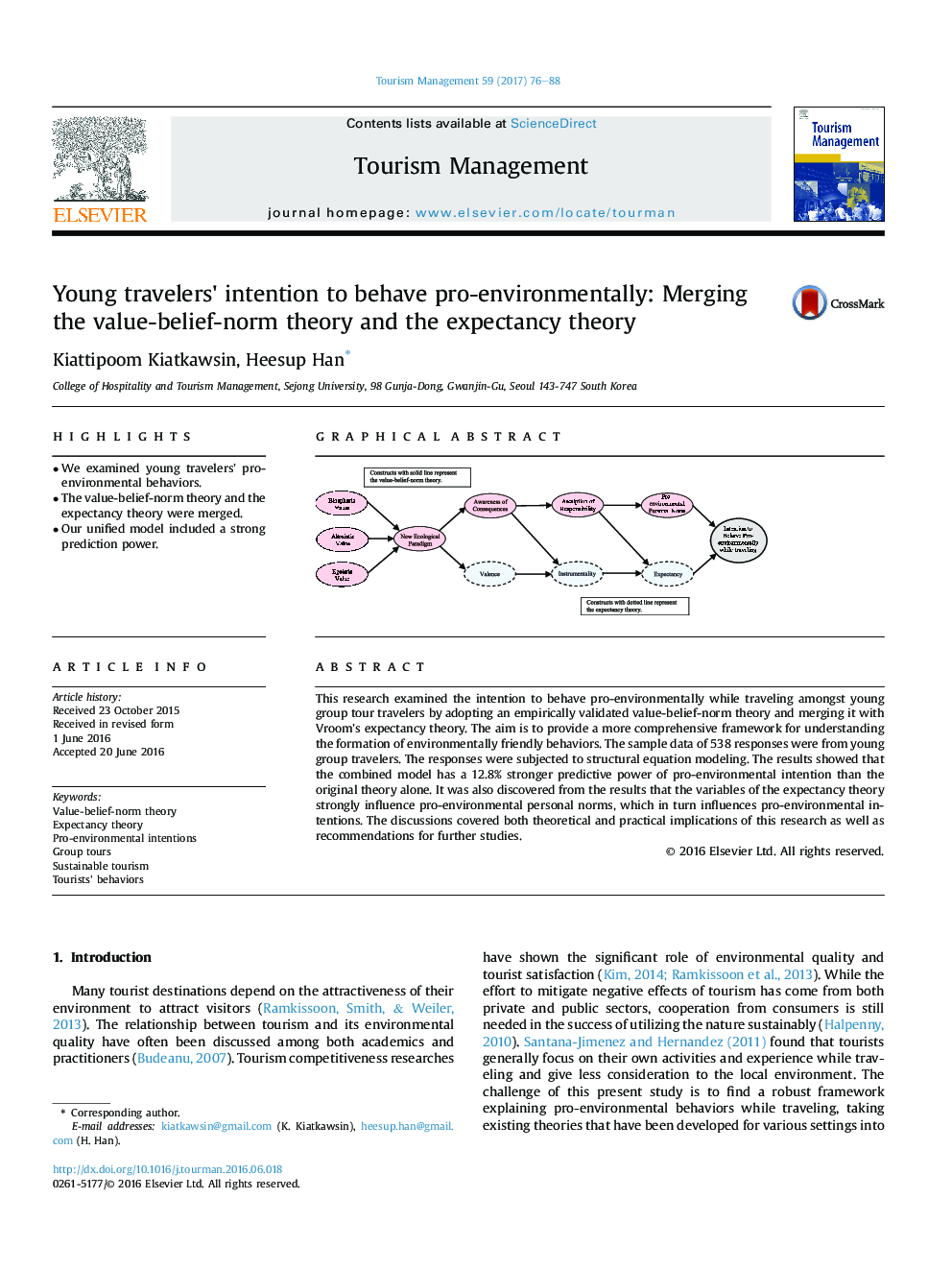| Article ID | Journal | Published Year | Pages | File Type |
|---|---|---|---|---|
| 1011802 | Tourism Management | 2017 | 13 Pages |
•We examined young travelers' pro-environmental behaviors.•The value-belief-norm theory and the expectancy theory were merged.•Our unified model included a strong prediction power.
This research examined the intention to behave pro-environmentally while traveling amongst young group tour travelers by adopting an empirically validated value-belief-norm theory and merging it with Vroom's expectancy theory. The aim is to provide a more comprehensive framework for understanding the formation of environmentally friendly behaviors. The sample data of 538 responses were from young group travelers. The responses were subjected to structural equation modeling. The results showed that the combined model has a 12.8% stronger predictive power of pro-environmental intention than the original theory alone. It was also discovered from the results that the variables of the expectancy theory strongly influence pro-environmental personal norms, which in turn influences pro-environmental intentions. The discussions covered both theoretical and practical implications of this research as well as recommendations for further studies.
Graphical abstractFigure optionsDownload full-size imageDownload as PowerPoint slide
